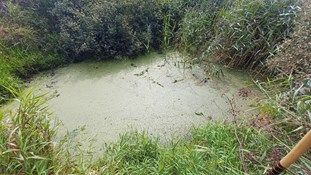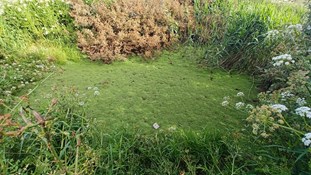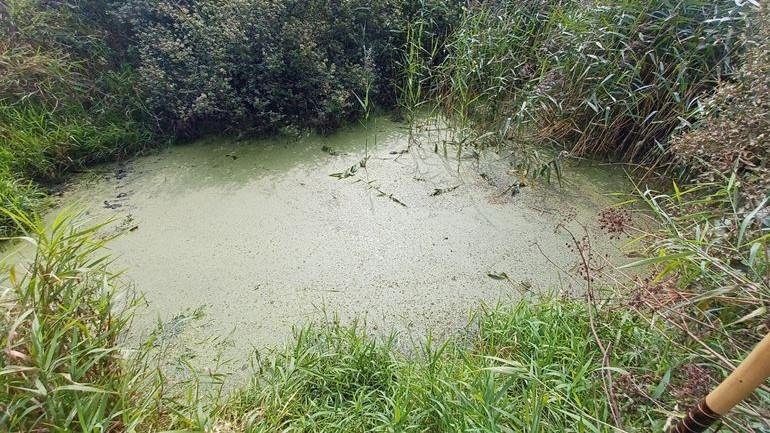A project to restore the Cleddau River SAC in Pembrokeshire has been using a herbivorous beetle to control an invasive species.
The Azolla weevil (Stenopelmus rufinasus) was released in June 2024 by the Four Rivers for LIFE Project onto Natural Resources Wales’s (NRW) Llangloffan Fen National Nature Reserve (NNR) near Fishguard.
The weevil will help to control and eradiate the Azolla plant (Azolla filiculoides) that is dominating some parts of the reserve and nearby Cleddau River.
Azolla is classed as an invasive non-native species (INNS) and is one of the most invasive plants in the UK today, however it is highly susceptible to the Azolla weevil, which actively feed and develop upon this plant.
Azolla is a floating aquatic fern that grows rapidly and spreads across the surface of standing water and slow running water to form mats which can be 30cm thick.
During hot weather, mats can double in size in just four or five days. These block out light, killing other aquatic flora and reduce oxygen availability, which can lead to the death of fish and invertebrates.
Duncan Dumbreck from the Four Rivers for LIFE Project said:
“Last summer we found several areas on the reserve where Azolla was taking over from native plants.
“With CABI’s advice and support we released Azolla weevils at the reserve and the impact has been significant and we are delighted with the changes so far.”
The project contacted the Centre for Agriculture and Biosciences International (CABI) as the organisation has successfully controlled Azolla in a number of areas using the Azolla weevil. More on this work can be found on this link.
After only eight weeks the impact has been substantial with most of the Azolla eaten and replaced by native duckweed.


The project will continue to monitor the progress of the weevils over the winter and early in the growing season next spring to assess whether they have managed to bring the Azolla under complete control.
Left image: before
Right image: after 8 weeks
The Azolla weevil is totally reliant on the Azolla plant and does not spread to other plants, therefore there is no risk to important fen plants and farming crops in the area. The beetles are hardy, but may suffer mortality over very harsh winters.
The Four Rivers for LIFE Project is funded by the EU LIFE Programme with support from Welsh Government and Welsh Water.



